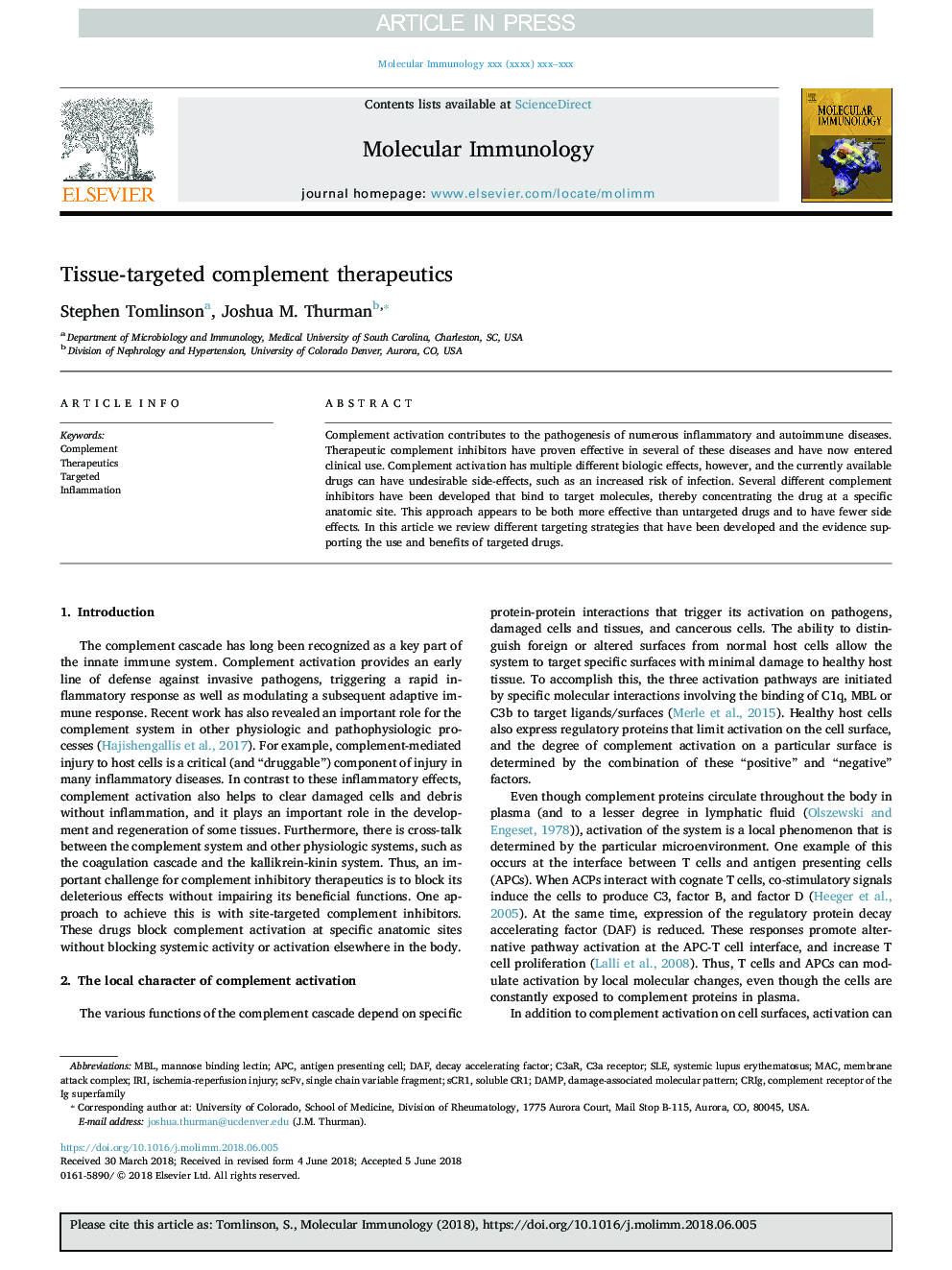| Article ID | Journal | Published Year | Pages | File Type |
|---|---|---|---|---|
| 10212536 | Molecular Immunology | 2018 | 9 Pages |
Abstract
Complement activation contributes to the pathogenesis of numerous inflammatory and autoimmune diseases. Therapeutic complement inhibitors have proven effective in several of these diseases and have now entered clinical use. Complement activation has multiple different biologic effects, however, and the currently available drugs can have undesirable side-effects, such as an increased risk of infection. Several different complement inhibitors have been developed that bind to target molecules, thereby concentrating the drug at a specific anatomic site. This approach appears to be both more effective than untargeted drugs and to have fewer side effects. In this article we review different targeting strategies that have been developed and the evidence supporting the use and benefits of targeted drugs.
Keywords
CRIgC3aRscFvDAMPMBLAPCDAFIRIsCR1Ischemia-reperfusion injuryinflammationdamage-associated molecular patternTherapeuticsantigen presenting cellSingle chain variable fragmentSystemic lupus erythematosusSLEMannose binding lectinComplementMACTargetedmembrane attack complexDecay accelerating factorC3a receptor
Related Topics
Life Sciences
Biochemistry, Genetics and Molecular Biology
Molecular Biology
Authors
Stephen Tomlinson, Joshua M. Thurman,
